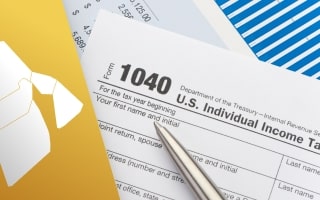Property Tax Records in Rhode Island

If you're buying a home in Rhode Island, you'll receive a tax bill every year that must be paid on time to ensure your taxes don't become delinquent. At an average of 1.30%, Rhode Island has some of the highest property taxes in the country.
The main differentiator in the Rhode Island property tax system is that they are assessed at the local level. In most states, each county sets its property tax rate. In Rhode Island, cities and towns set tax rates and collect property taxes.
Tax assessment in Rhode Island isn't much different than in most states. A city assessor will perform a mass appraisal of all homes within their jurisdiction to calculate property values. You'll then receive a tax bill that's based on your home's assessment value. Most cities require quarterly property tax payments. In Providence, these payments are collected in July, October, January, and April.
The Property Tax Relief and Replacement Act was passed by the Rhode Island General Assembly in 2006 to further reduce high tax increases. Between 1985 and 2006, the maximum property tax increase was 5.5%, but this was reduced to 4% in 2006.
Property Tax Assessment in Rhode Island

Your property taxes are determined based on the current market value and the assessed value of your home. As mentioned previously, the appraisal process is handled at the local level, which means that a city or town assessor will estimate the market value of your property.
Keep in mind that every city can have its own property assessment system. While the state has some guidelines that each locality must adhere to, most of the system is controlled by city or town governments.
To calculate your taxes, you must first know what your property's market value is. The market value is the amount that your home could be sold for on the market. State law requires cities and towns to revalue properties at least once every nine years. When a formal revalue occurs, the assessor will visit your home directly. Otherwise, your property's market value will receive statistical updates every third and sixth year.
The tax rate in your city will apply to your home's assessed value, which is equal to around 80% of its market value. If your home has a market value of $400,000, its assessed value will be $320,000. You can reduce this value further by claiming a property tax exemption.
Tax rates in Rhode Island cities are displayed as dollars per $1,000 of the property's assessed value. Let's say that your city has a $15 tax rate. In this situation, you'll be tasked with paying $15 for every $1,000 in total assessed value. If your home has an assessed value of $320,000, your annual property taxes will amount to $4,800.
You can also use your county's effective tax rate to estimate how much you'll owe for the year. An effective tax rate is applied to the full market value instead of the assessed value. Kent County has an effective tax rate of 1.84%. When applied to a home that's valued at $400,000, the annual property taxes will be $7,360. The effective tax rates for the most populous Rhode Island counties are:
- Providence County: 1.72%
- Kent County: 1.84%
- Washington County: 1.29%
- Newport County: 1.27%
- Bristol County: 1.60%
Property taxes in Rhode Island don't differ too much based on location. However, property taxes in Kent County are much higher than in other parts of the state.
Calculate Rhode Island Taxes
In Rhode Island, property taxes are assessed and collected at the municipal level, with rates varying by city or town and depending on the property’s classification, residential, commercial, or tangible personal property. A smart way to understand how these taxes are calculated is by using a Rhode Island property tax calculator. This tool simplifies the process for both homeowners and real estate investors by allowing users to input key property information and estimate their annual tax liability based on local mill rates and any applicable exemptions.
A property tax calculator is especially useful for estimating your yearly tax obligations and uncovering potential tax savings opportunities. It can help identify exemptions and tax relief programs offered by individual municipalities, such as exemptions for senior citizens, veterans, and people with disabilities. Rhode Island also provides income-based property tax relief for qualifying residents, making the calculator an important resource for evaluating your potential tax benefits and financial planning.
using our property tax calculator.
Rhode Island Property Tax Records: What Are They?

The property taxes you pay each year are collected by the city or town you live in before being administered locally to different tax districts. Most of the revenue that local governments collect comes from property taxes. These funds are used to pay for all types of local government services, which include everything from parks and schools to law enforcement and infrastructure.
Before you buy a Rhode Island home, consider learning more about the property by accessing its tax records. Most property data must be made available to the public. In Rhode Island, nearly every city offers access to these records through online databases.
You should be able to find your city's property database on the local assessor's website. After inputting the property address or owner name, you should be taken directly to an up-to-date report. The information that's usually contained in this report includes the following:
-
Map and lot numbers
-
State code
-
Property address
-
Parcel ID
-
Current assessment value
-
Five years of prior assessments
-
Photos and sketches of the property
-
Owner name
-
Architectural style
-
Year built
-
Bedrooms and bathrooms
-
Square footage
-
Previous sales info
-
Total land area
-
Description and pricing of renovations
-
Detailed descriptions of building attributes
-
Building layout
-
Tax payments
Property Tax Exemptions and Deductions in Rhode Island

If you own a home or rental property in Rhode Island, you may be able to qualify for a property tax exemption or deduction that can reduce the taxes you pay each year. However, there's no statewide homestead exemption. Cities and towns are allowed to provide their own tax breaks. For example, Providence provides property owners with a handful of exemptions, which are detailed below.
Elderly Exemption: If you're a Rhode Island homeowner who's at least 65 years old, you may qualify for this exemption. If you qualify, it can reduce your property taxes by as much as $600.
Social Security Exemptions: Two exemptions are available to individuals who receive Social Security benefits. If the Social Security Administration has certified you as being 100% disabled, you can receive a maximum exemption of $499. You must own the home and live in it for most of the year to claim the exemption.
If you're anywhere from 62-64 years old and receive benefits from the Social Security Administration, you can apply for this exemption. It can reduce your property taxes by as much as $460 for the year. Once you receive approval for this exemption, you don't need to reapply.
Veteran Exemptions: Veterans have access to two possible Rhode Island property tax exemptions. If you have a 100% disability rating that's connected to your service, you should be eligible for this exemption. Keep in mind that the exemption amounts to $307. If you've been honorably discharged from the military, you can claim the standard veteran exemption. This exemption can be as high as $153.
Blind Exemption: Any homeowner who has been certified blind by a physician can claim this exemption. You must live in the home to be eligible. The maximum exemption amount is $921.
How To Search Property Tax Records in Rhode Island

There are a few ways to search for property tax records in Rhode Island. Since property taxes aren't handled by counties, you'll need to search for them in the specific city or town that the home is located in.
For example, let's say that you're buying a home in Providence. The Providence assessor maintains online tax records and property data on a database that's managed by the Northeast Revaluation Group. When using this database, you can search for properties with parameters like owner name, lot, plat, or property address.
Keep in mind that online databases can vary with each city. In Cranston, you can look for property tax records by entering details like the property address, owner name, or account number. Most cities produce the same information from one of these searches.
If you can't find your city's online database, consider using a third-party solution like PropertyChecker. This website allows you to search for any property in Rhode Island. You can use parameters like the property address, owner's name, phone number, and parcel ID. If you have enough info to locate a specific home, you'll receive a considerable amount of property data, which includes the following:
-
Deed records, which include information about any liens on the property
-
Loan records
-
Owner names
-
Previous sales history, including dates and prices
-
Current market and assessment values
-
Property details like renovation history and lot size
-
Neighborhood information, such as school details and crime stats
-
Foreclosure records
-
Building permits
-
Recent property tax records
How To Appeal Property Taxes in Rhode Island

Every year, you'll receive a property tax bill that informs you of how much you need to pay. In Providence, this bill should be mailed to you in late June. The date can vary based on where you live. If your home's assessment value has changed over the past year, a Notice of Assessment will be mailed to you several months before you get your tax bill.
Once you obtain a Notice of Assessment, you can choose to appeal the new value. If the city assessor has made an error when calculating your home's assessed value, your annual property taxes could increase significantly. If you identify a mistake or believe that the value of your home should be reduced, consider filing an appeal by taking the following steps.
Step 1: When you wish to appeal, you have 90 days from your first payment to do so. Quarterly payments are typically due starting in August. The Rhode Island property tax appeal must be filed with your local assessor. They'll schedule a somewhat informal hearing.
Step 2: The assessor should mail their decision to you within 45 days. If you disagree with their decision or don't receive it by the due date, you can file an additional appeal with your local tax board for review. Make sure you submit the document within 30 days following the assessor's initial decision.
Step 3: The local tax board hearing is a formal one that will take place within 90 days after you appeal. You'll receive their decision within 30 days. At the hearing, you'll be tasked with presenting your evidence, which can involve testimony from an appraisal expert.
Step 4: The final appeal you can file is to your county's Superior Court. It's recommended that you seek legal representation for this stage of the appeals process.
How Property Tax Records Impact Real Estate Transactions in Rhode Island

If you're buying, selling, or investing in a home, property taxes can impact any real estate transaction you become involved in. Since property taxes in Rhode Island are among the highest in the country, buyers need to consider how much their monthly mortgage payments will increase from annual taxes.
If your annual tax bill amounts to $4,800, your mortgage payments will increase by $400 every month. By estimating your property taxes before you make an offer to buy a home or rental property, you'll be able to determine if you can afford the home. To mitigate high property taxes, you can either look for a home with a lower value or search for real estate in a county that doesn't have a high tax rate.
When selling a home in a county with high property taxes, it can be challenging to gain interest from potential buyers. In this scenario, the seller may be tasked with reducing their home's listing price to make it more competitive with comparable homes in the area. Buyers can use property tax records to gain more data about a home and determine if the asking price is fair.
When an investor is considering buying a home, they'll need to perform calculations to see if the property taxes they pay will make their monthly debts too high. The only way an investor can make a profit on a rental property is by earning more from rental income than they pay in monthly debt obligations. If an investor needs to pay high property taxes, they're more likely to increase the rental price.
Investors in Rhode Island often take part in tax sales, which are held by cities and towns around once or twice every year. During this type of sale, investors will have the opportunity to bid on tax liens. When a homeowner doesn't pay an installment of property taxes that they owe during the year, the unpaid funds could become delinquent.
When this occurs, the city can place a tax lien on the property. These liens are sold at public auctions to investors. The investor with the winning bid must pay the delinquent taxes as well as any unpaid interest. Keep in mind, however, that a tax sale doesn't mean that the property is sold. The owner will still have time to repay their taxes.
While the investor who buys the tax lien doesn't gain ownership of the property, they can eventually foreclose on the home if the taxes remain unpaid. The owner's right of redemption ends one year after the tax lien is sold. Once the investor forecloses on the property, they'll have the opportunity to claim it in full.
Free Rhode Island Property Tax Lookup
Tax Records Please wait...
Property Tax Guide
- Property Tax Records in Rhode Island
- Property Tax Assessment in Rhode Island
- Rhode Island Property Tax Records: What Are They?
- Property Tax Exemptions and Deductions in Rhode Island
- How To Search Property Tax Records in Rhode Island
- How To Appeal Property Taxes in Rhode Island
- How Property Tax Records Impact Real Estate Transactions in Rhode Island
Instant Access to Rhode Island Property Records
- Owner(s)
- Deed Records
- Loans & Liens
- Values
- Taxes
- Building Permits
- Purchase History
- Property Details
- And More!
Free Rhode Island Property Tax Lookup
Tax Records Please wait...
Property Tax Guide
- Property Tax Records in Rhode Island
- Property Tax Assessment in Rhode Island
- Rhode Island Property Tax Records: What Are They?
- Property Tax Exemptions and Deductions in Rhode Island
- How To Search Property Tax Records in Rhode Island
- How To Appeal Property Taxes in Rhode Island
- How Property Tax Records Impact Real Estate Transactions in Rhode Island